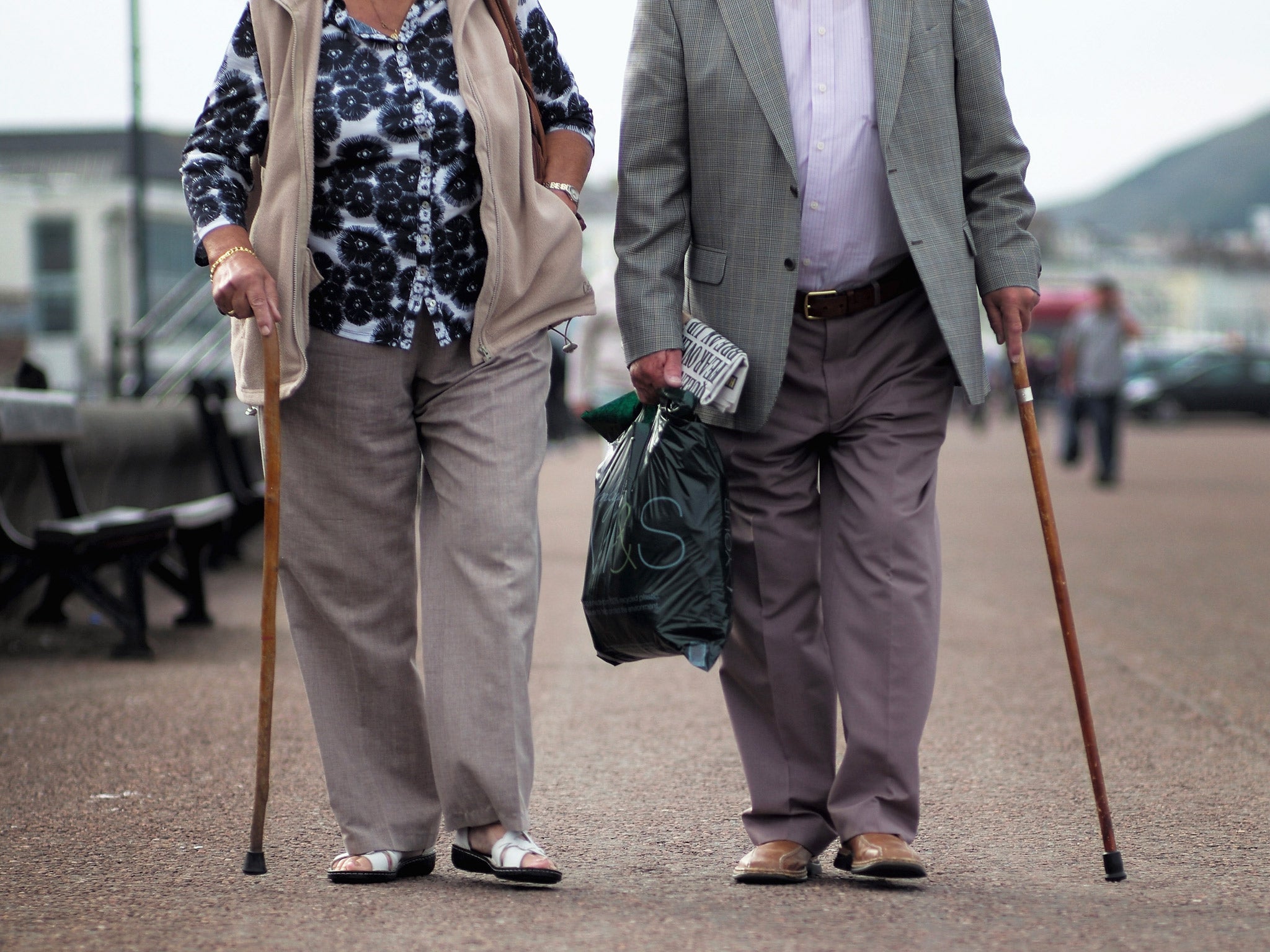Women spend more years of their life in poor health than men, major new report finds
Life expectancy discrepancies between most and least deprived areas remain unchanged since the late 1990s

England is suffering from a gender gap when it comes to health, with the average woman spending nearly a quarter of her life in poor health compared to a fifth for men, a major report has warned.
The key Public Health England (PHE) report on the state of the nation’s health found that inequality also means people living in the richest areas enjoy nearly 20 more years of good health compared to those in the poorest.
John Newton, director of health improvement at PHE, told The Independent the relative differences in life expectancy between the least and most deprived areas had hardly changed since the late 1990s.
“It is certainly a cause for concern – these differences have been known for many years,” he said.
Mr Newton said the report was “not all doom and gloom” and showed plenty of encouraging signs with people living longer and in better health at every age.
Life expectancy is higher than ever before and while women are still living longer than men, the gap between the sexes is narrowing over time.
On average, women are living 83.1 years compared with 79.5 years for men. But those extra years tend to be spent in poor health, the report states.
Women are now living on average 19.1 years in poor health, or around 23 per cent of their lives compared with 16.1 years for men or about 23 per cent of their lives.
Mr Newton said one explanation for the decreasing difference in life expectancy between men and women could be put down to smoking.
He said: “Many men came back from the Second World War as smokers but the decline of smoking practice among men started earlier than for women. We are still seeing the delayed effect of peak smoking habit among women.”
He added that although life expectancy between the sexes continues to converge, it could take decades before men live as long as women.
Depression and mental health issues, which are slightly higher among women, are also one explanation as to why women live more years in ill-health than men, he said.
One of the major focus of the “Health Profile for England” report was to examine health inequalities among different population groups.
Life expectancy continues to be higher on average for those living in wealthier areas. Men living in the tenth most deprived areas can expect to live up to nine years less than their peers in the most privileged places. For women the difference drops to seven years.
The report also highlights the fact there is a persistent “North-South” divide in life expectancy and healthy life expectancy, with those living in the South living fewer years in poor health than in people in the North.
People living in the North-East were found to have the lowest life expectancy of 77.9 years while those living in the South-East had the highest life expectancy of 80.5 years.
A major part of the difference in life expectancy between the North and the South is due to additional deaths from heart disease, stroke and cancer in the most deprived areas, the report found.
Mr Newton said: “The point that we want to make is that although we have differences in the North and the South, there are pockets of deprivation across the country and we should not think that this is inevitable.
“Although the causes for the difference includes things like smoking and physical activity, which are things we can help with, it also includes factors such as employment, access to green space and housing. These are the sort of things local governments are working on at the moment.”
Mr Newton added there were “considerable economic advantages” in addressing inequality of life expectancy and ill-health.
“But a lot of the improvements needed lie outside the health sector and we need the support of policy makers and other sectors to continue to improve the health of the population,” he said.
Compared with the 27 other EU countries, the UK ranked 10th for male life expectancy and 17th for female life expectancy with Britons living respectively one year and three years less than in Spain for example.
PHE’s findings also highlight the fact low back and neck pain have become the biggest cause of ill health across nearly all ages and both genders.
Overweight and high levels of blood sugar remain the two biggest factors behind ill-health in the UK and for the first time, diabetes is part of the top 10 causes of ill-health and disability.
PHE also warns that a flu pandemic is the “most significant civil risk facing the UK” with up to a 50 per cent probability of an outbreak occurring in the next five years.
Subscribe to Independent Premium to bookmark this article
Want to bookmark your favourite articles and stories to read or reference later? Start your Independent Premium subscription today.

Join our commenting forum
Join thought-provoking conversations, follow other Independent readers and see their replies